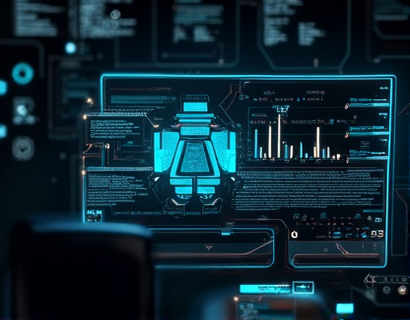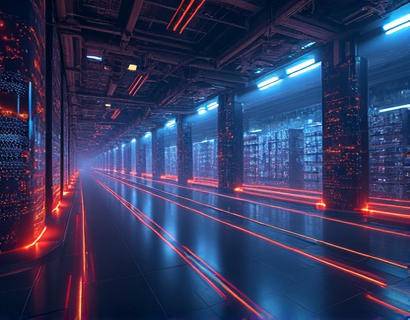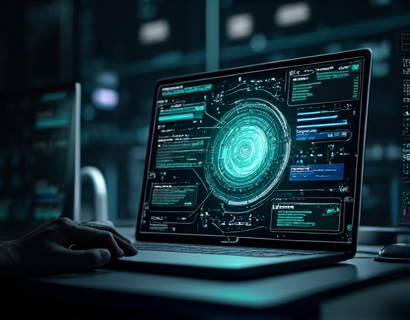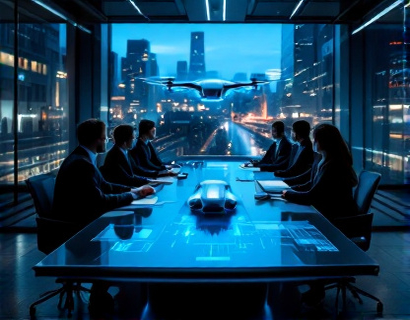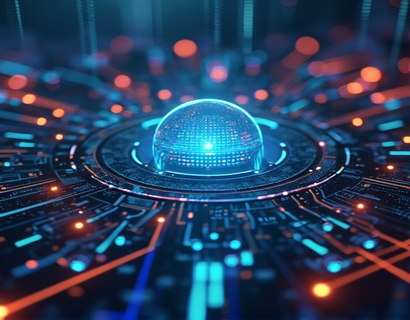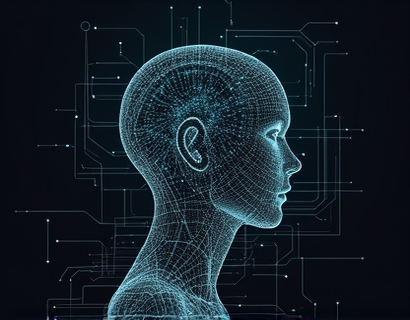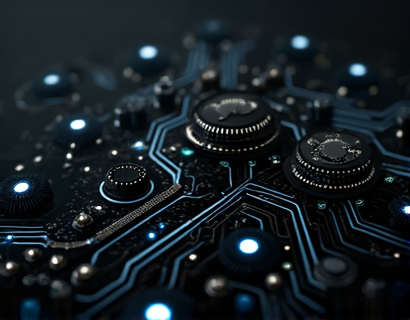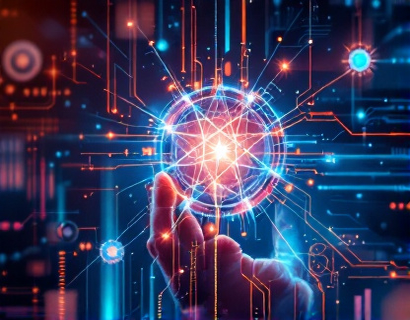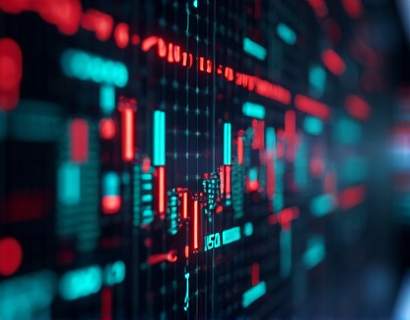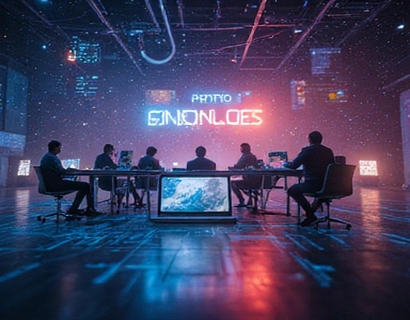Decentralized AI Evolution: Transforming Digital Solutions with Crypto Innovation
The integration of artificial intelligence (AI) with cryptocurrency is ushering in a new era of decentralized applications and services. This fusion is not just a technological advancement but a paradigm shift in how we interact with digital solutions. The convergence of these two powerful technologies is redefining the landscape of online engagement, offering unprecedented levels of security, transparency, and user empowerment. This article delves into the transformative power of this merger, exploring the next generation of decentralized applications and services that are set to revolutionize the digital world.
The foundation of this evolution lies in the decentralized nature of blockchain technology. Blockchain provides a secure, immutable, and transparent ledger for transactions, eliminating the need for intermediaries. When combined with AI, which excels in data analysis, pattern recognition, and decision-making, the potential for innovation becomes immense. Decentralized AI applications can leverage the collective computing power of a network, ensuring that no single entity controls the process, thereby enhancing security and reducing the risk of bias.
One of the key benefits of decentralized AI is the democratization of data. In traditional centralized systems, data is often controlled by a few large corporations, limiting access and innovation. Decentralized platforms allow users to own and monetize their data, giving them greater control and incentives to participate. This shift not only empowers individuals but also fosters a more inclusive and diverse ecosystem, as a wider range of data sources can be utilized to train AI models.
The development of decentralized AI models, often referred to as decentralized machine learning (DeML), is a critical component of this evolution. DeML allows for the training of AI models across a distributed network of devices, rather than on a single powerful server. This approach not only reduces the computational load on any single node but also enhances privacy, as sensitive data remains on the user's device and only aggregated results are shared. This method ensures that personal information is protected while still enabling the creation of robust AI models.
Smart contracts, a cornerstone of blockchain technology, play a vital role in the deployment and operation of decentralized AI applications. Smart contracts are self-executing contracts with the terms of the agreement directly written into code. They automate the execution of tasks based on predefined conditions, ensuring that processes are transparent and tamper-proof. In the context of AI, smart contracts can be used to manage data access, model training, and even the distribution of rewards to participants in a decentralized manner.
Another significant aspect of decentralized AI is the concept of federated learning. Federated learning allows AI models to be trained across multiple decentralized devices or servers holding local data samples, without exchanging them. This approach minimizes data privacy concerns and reduces the bandwidth required for model training. By keeping data local and only sharing model updates, federated learning ensures that sensitive information remains secure while still benefiting from the collective intelligence of the network.
The application of decentralized AI extends across various industries, from healthcare to finance, and from supply chain management to content creation. In healthcare, decentralized AI can improve patient data management and enhance diagnostic accuracy through collaborative model training. In finance, it can enhance fraud detection and risk assessment by analyzing vast amounts of data from multiple sources in real-time. Supply chain management can benefit from decentralized AI by improving traceability and efficiency, ensuring that products are sourced ethically and sustainably.
In the realm of content creation, decentralized AI can revolutionize how media is produced and distributed. Content creators can leverage AI tools that are powered by decentralized networks to generate high-quality content, from writing and editing to visual and audio production. These tools can be accessed and used by a global community, fostering collaboration and innovation. The decentralized nature ensures that creators retain ownership of their work and can monetize it directly, without intermediaries siphoning off profits.
The technical underpinnings of decentralized AI involve several key technologies and concepts. Blockchain provides the decentralized infrastructure, ensuring secure and transparent transactions. Cryptography ensures data integrity and privacy, while consensus mechanisms like Proof of Stake (PoS) and Proof of Authority (PoA) enable efficient and secure network operations. Machine learning algorithms are adapted to work in a decentralized environment, often requiring modifications to handle distributed data and computation.
One of the challenges in deploying decentralized AI is the issue of scalability. Traditional blockchain networks can struggle with high transaction volumes, leading to slower processing times and higher costs. However, advancements in blockchain technology, such as sharding and layer 2 solutions, are addressing these scalability concerns. These innovations allow for more efficient data processing and transaction handling, making decentralized AI more practical and viable for widespread use.
Another challenge is the need for standardization and interoperability. As the ecosystem of decentralized AI applications grows, ensuring that different systems can communicate and work together seamlessly becomes crucial. Industry-wide standards and protocols can help achieve this, facilitating a more cohesive and user-friendly experience for developers and end-users alike.
The future of decentralized AI holds immense promise. As more developers and organizations adopt these technologies, we can expect to see a proliferation of innovative applications that enhance various aspects of digital life. The integration of AI with decentralized finance (DeFi) is particularly exciting, as it can lead to more equitable and accessible financial services. Decentralized AI can also play a pivotal role in the development of autonomous systems, from smart cities to self-driving vehicles, ensuring that these systems are transparent, secure, and fair.
In conclusion, the evolution of AI through decentralization is a transformative force that is reshaping the digital landscape. By leveraging the strengths of both technologies, we can create more secure, transparent, and user-centric applications. As the ecosystem continues to grow and mature, the potential for innovation and positive impact is vast. Embracing this new era of decentralized AI is not just an option but a necessity for those looking to stay ahead in the rapidly evolving digital world.



